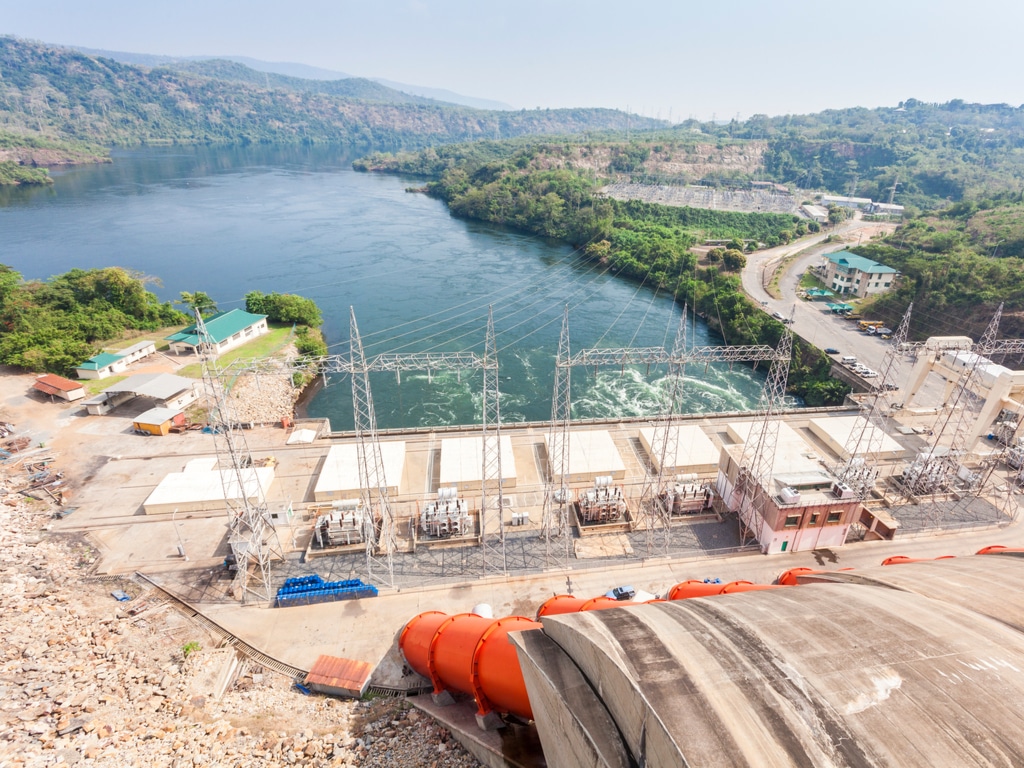The Pwalugu Multi-Purpose Dam project will “store water for hydropower, for downstream irrigation and for flood protection for people living in the White Volta Basin”. This is according to the report of the Ghanaian parliament’s finance committee. It has just approved this development project in northern Ghana.
This decision comes just a few months after Ghanaian President Nana Akufo-Addo officially launched the project. The approval of the project had been delayed by some members of the Ghanaian parliament who considered the cost of its implementation to be very high. The project will require an investment of $993 million and will have several components.
Project components
The engineering, procurement and construction (EPC) contract for the Pwalugu multipurpose dam has been awarded to Power China International. The Chinese company will build a 165 m high dam on the White Volta River in the Talensi district of the Upper East region. The structure will have a 350 km² water-holding reservoir. Below the dam, the company will build a hydroelectric power station equipped with two turbines. The turbines will have a combined capacity of 60 MW and a solid continuous output of 16.5 MW.
Part of the water from the reservoir will be pumped to supply a large irrigation system in northern Ghana. The Ghanaian government estimates the irrigation capacity at 25,000 hectares, benefiting 15,000 people living from agriculture. The project will thus enable the development of local agriculture, which is highly dependent on climatic conditions. The Pwalugu hydropower plant would be backed by another renewable energy source.
It is a photovoltaic solar power plant with a capacity of 50 MWp. The plant will be built in Kurugu, in the municipality of East Mamprusi, North-East region. “The 60 MW hydropower plant and the solar power plant will form the first ever hydro-solar hybrid system in Ghana. The two technologies complement each other to provide a reliable and stable power supply to the national grid,” said Ghanaian Head of State Nana Akufo-Addo at the inception of the project in December 2019.
Jean Marie Takouleu
